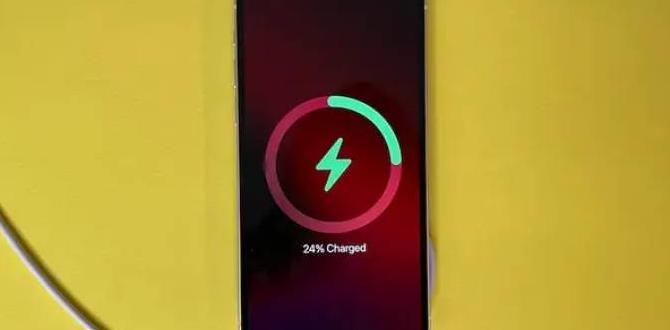Need to understand battery charges?
This guide breaks down the penal code for battery, making legal terms simple and clear. Learn what constitutes battery, common legal defenses, and potential penalties so you can navigate these legal waters with confidence.
Have you ever heard someone talk about “battery charges” and wondered what that really means? It can sound serious, and sometimes it is, but understanding the basics is much simpler than you might think. Many everyday situations can accidentally lead to misunderstandings that end up involving the law. This guide is here to clear up the confusion.
We’ll walk through what battery actually is in legal terms, how it’s different from assault, and what the law says about it. You don’t need a law degree to grasp these important concepts. We’ll use straightforward language and break everything down step-by-step, covering common scenarios and what you need to know.
By the end of this, you’ll feel much more confident about the penal code for battery. Let’s dive in and make these legal matters understandable!
Understanding the Penal Code for Battery: What You Need to Know
When we talk about the “penal code for battery,” we’re referring to the laws that define what constitutes a criminal act of battery and what the consequences are. It’s essentially the rulebook that outlines unwanted physical contact. In simple terms, battery is usually defined as intentionally touching another person in an offensive or harmful way without their permission. This isn’t just about serious fights; it can cover much less severe actions too.
Battery vs. Assault: What’s the Difference?
It’s common to hear “assault and battery” used together, but legally, they are distinct. Assault typically involves an action that makes someone fear they are about to be harmed. Think of raising your fist as if you’re going to hit someone, but you don’t actually make contact. Battery, on the other hand, is the actual unwanted physical touching.
So, to sum it up:
- Assault: Creating fear of immediate harm.
- Battery: The act of unwanted physical contact itself.
You can have an assault without a battery, and often, a battery is preceded by an assault. However, battery can also occur without an accompanying threat if the contact is simply unexpected and unwanted.
Elements of Battery According to the Penal Code
For someone to be convicted of battery, the prosecution generally needs to prove a few key things. These are the building blocks of a battery charge:
- Intent: The act must have been done on purpose. It wasn’t an accident. For example, if you accidentally bump into someone while walking, that’s not battery. But if you intentionally shove them, that’s a different story. The law looks at whether you meant to make the contact.
- Offensive or Harmful Contact: The touching must be considered offensive or harmful. This can range from a slap or punch to spitting on someone, or even grabbing their arm in an aggressive way. The contact doesn’t have to cause injury to be considered battery, but it must be more than a playful tap; it needs to be something that a reasonable person would find offensive.
- Lack of Consent: The person being touched must not have agreed to the contact. In situations like sports, there’s implied consent for certain types of contact. But in everyday life, unless you give permission, unwanted physical contact is typically battery.
- Causation: The defendant’s action must have directly caused the offensive or harmful contact.
These elements are crucial. If the prosecution can’t prove all of them beyond a reasonable doubt, a person cannot be found guilty of battery.
Degrees of Battery: Simple vs. Aggravated
Not all battery offenses are treated the same. The law often categorizes battery into different levels, with the most common distinction being between simple battery and aggravated battery. The severity of the charge usually depends on factors like how the victim was harmed, the intent of the perpetrator, and the status of the victim.
Simple Battery
Simple battery is the least serious form. It typically involves:
- Unwanted touching that is offensive but doesn’t cause significant injury.
- Intentionally causing minor harm.
- Pushing, slapping, or minor scuffles that don’t result in serious bodily harm.
Penalties for simple battery are usually less severe, often involving fines, probation, or a shorter jail sentence. For instance, a minor disagreement leading to a shove could fall under simple battery.
Aggravated Battery
Aggravated battery is a more serious offense. It usually involves battery committed under certain circumstances that make it more serious, such as:
- Intending to cause serious bodily harm.
- Using a deadly weapon during the act.
- The victim being a protected person (like a child, elderly person, police officer, or someone with a disability).
- The battery causing severe or permanent injury.
The penalties for aggravated battery are much harsher, including lengthy prison sentences and significant fines. For example, if someone uses a weapon to injure another person, it’s likely to be considered aggravated battery.
Penalties for Battery Charges
The consequences of a battery conviction can vary widely depending on the jurisdiction, the severity of the offense (simple vs. aggravated), and the defendant’s criminal history. It’s important to remember that laws differ from state to state and even city to city.
Here’s a general overview of potential penalties:
| Type of Battery | Potential Penalties | Examples |
|---|---|---|
| Simple Battery | Fines, probation, community service, short jail time (up to a year) | Shoving someone during an argument, a slap without serious injury |
| Aggravated Battery | Significant fines, lengthy prison sentences (often 1–10 years or more), felony record | Using a weapon to injure someone, causing severe injury, battery against a police officer |
A conviction can also lead to other long-term consequences, such as difficulty finding employment, housing, or obtaining certain professional licenses. A criminal record, especially for a felony, can impact many areas of your life.
Common Scenarios Involving Battery Charges
Battery charges can arise in surprisingly common situations. Understanding these scenarios can help you avoid inadvertently crossing legal lines.
Domestic Disputes
Arguments within a household can sometimes escalate to physical contact. Even a push or a slap during a heated argument can be considered battery. These cases are often taken very seriously by law enforcement, and charges can be filed even if the victim later decides not to press charges, as prosecutors may pursue the case independently.
Bar Fights and Altercations
Altercations in public places, such as bars or clubs, are frequent sources of battery charges. This can include anything from a heated exchange that leads to shoving to a full-blown fight. The presence of alcohol can sometimes be a factor that law enforcement considers, but it doesn’t excuse the physical act itself.
Road Rage Incidents
Aggressive driving and confrontations on the road can also lead to battery charges. This might involve someone getting out of their car to confront another driver and making physical contact, or even throwing objects that hit another person or vehicle if it leads to harm or offensive contact.
Workplace Disputes
While less common, conflicts at the workplace can sometimes turn physical. This could involve a disagreement between colleagues that escalates, or even an employer-employee conflict. Such incidents can lead to battery charges depending on the nature of the contact.
Self-Defense Claims
A common defense against battery charges is self-defense. However, the law has specific requirements for self-defense to be considered valid. To legally claim self-defense, you must generally prove:
- You reasonably believed you were in immediate danger of unlawful physical harm.
- You used only the amount of force necessary to protect yourself from that perceived danger.
- You did not provoke the attack.
It’s crucial to understand that you cannot use excessive force, even if you are acting in self-defense. For example, if someone lightly shoves you, you cannot then retaliate with a punch that causes serious injury and claim self-defense.
For more on legal definitions and rights, the U.S. Department of Justice offers a wide range of information on legal matters and the justice system.
Legal Defenses Against Battery Charges
If you find yourself accused of battery, understanding potential legal defenses is crucial. A good defense can significantly impact the outcome of your case. Here are some common defenses that may be raised:
1. Lack of Intent
As we discussed, intent is a key element of battery. If you can show that the physical contact was purely accidental and not intentional, then you cannot be guilty of battery. For example, if you stumbled and accidentally bumped into someone, or if you were trying to hand them something and they snatched it aggressively, causing contact, it might be argued that there was no intent to cause offensive or harmful touching. Proof might involve witness testimony or your own account of how the incident occurred.
2. Consent
If the person you made contact with consented to the touching, it cannot be considered battery. Consent can be expressed or implied. For instance, in a sport like boxing or football, participants give implied consent to certain types of physical contact. In other situations, someone might explicitly say, “Go ahead, push me,” although this is less common and harder to prove. The key is that the consent must be freely given and genuine.
3. Self-Defense
This is one of the most common defenses. If you used reasonable force to protect yourself from imminent bodily harm, it can be a valid defense. The law requires that the force used must be proportional to the threat. You must have genuinely believed you were in danger, and the force you used must have been necessary to repel the attack. The National Conference of State Legislatures provides detailed information on self-defense laws across different states.
4. Defense of Others
Similar to self-defense, this involves using reasonable force to protect another person from imminent harm. If you saw someone about to be attacked and intervened to prevent harm using necessary force, you might have a defense. The same principles of reasonable and proportional force apply here as in self-defense.
5. False Accusation or Mistaken Identity
In some cases, the accusation might be false, or the alleged perpetrator might be mistaken for someone else. This is where evidence like CCTV footage, witness accounts, or alibis can be critical in proving you were not involved or that the accuser is fabricating the claims.
It’s vital to consult with a legal professional to understand which defenses might apply to your specific situation. An experienced attorney can help you gather evidence and build the strongest possible case.
International Perspectives on Battery Laws
While the core concept of unlawful physical contact is universal, the specifics of battery laws, how they are prosecuted, and the penalties involved can differ significantly from one country to another. Understanding these variations highlights that legal definitions are shaped by cultural norms and legal traditions.
Examples of Variations in Battery Laws
- Europe: Many European countries have laws that criminalize assault and battery, often with similar distinctions to U.S. law. However, the emphasis and definitions can vary. For example, in some European countries, “battery” might be more strictly defined as causing physical injury, while offensive touching might fall under broader public order or insult laws. Penalties can range from fines to imprisonment, with specific aggravated circumstances (like involving a vulnerable victim or public officials) leading to harsher sentences.
- Canada: Canadian law differentiates between assault (threat or fear of imminent contact) and assault causing bodily harm or aggravated assault (resulting in injury). The physical contact itself is often considered part of the assault charge escalation rather than a separate “battery” offense in the same way it is in the United States. Penalties are based on the severity of the harm caused.
- Asia: Laws vary widely across Asia. Some countries may have detailed statutes defining different levels of assault and battery, while others might have more general provisions. Cultural influences can play a role, with some legal systems placing a higher value on social harmony, which might influence how minor physical altercations are handled. For example, laws might focus more on mediation or restorative justice for less severe incidents.
These international differences mean that what constitutes a prosecutable offense in one place might be handled differently elsewhere. For instance, a light punch that might be considered simple battery in the US could be viewed as a minor public disturbance in another country and dealt with through a fine or warning.
For those interested in comparative law, resources like the World Justice Project offer insights into legal systems around the globe, though they may not delve into specific penal code details for battery.
Frequently Asked Questions (FAQ) About the Penal Code for Battery
What is the main difference between assault and battery?
Assault is usually about creating a fear of immediate harm, like threatening someone. Battery is the actual unwanted physical contact itself. You can have assault without battery, and battery often includes assault, but they are legally distinct.
Does a battery charge require physical injury?
No, not necessarily for simple battery. Battery is defined as offensive or harmful touching. While causing injury makes it more serious (aggravated battery), unwanted offensive touching, like a slap or a push, can be battery even without a visible injury.
Can you be charged with battery if the person agreed to the physical contact?
Generally, no. If the person consented to the touching, it’s not battery because consent negates one of the key elements of the crime. However, consent must be freely given and genuine, and it doesn’t apply to actions that cause significant harm or are illegal in themselves.
What is considered “offensive” touching in a battery case?
Offensive touching is contact that is common, everyday indignities or insults that a reasonable person would find unwelcome. This could include things like spitting on someone, grabbing their clothing, an unwelcome groping, or a forceful shove that is intended to humiliate or annoy, even if it doesn’t cause physical harm.
What happens if a fight starts with both people pushing each other?
If multiple people engage in a mutual physical altercation where both parties willingly participate in the pushing or hitting, it can sometimes be treated as mutual combat. In such cases, both parties might face charges, or the situation might be handled differently by law enforcement and prosecutors, depending on the specifics and local laws.
How serious are the penalties for a first-time battery offense?
Penalties for a first-time simple battery offense are usually less severe than for aggravated battery or repeat offenses. They might include fines, probation, community service, or a short jail sentence. However, even a first offense can result in a criminal record, which can have long-term consequences.
Can a minor be charged with battery?
Yes, minors can be charged with battery. However, they are typically handled within the juvenile justice system, which focuses more on rehabilitation than punishment. The specific procedures and outcomes will depend on the juvenile court’s laws and the nature of the offense.
Conclusion
Understanding the penal code for battery demystifies what might seem like complex legal jargon. At its core, battery involves intentional, offensive, or harmful physical contact without consent. While assault is about creating fear, battery is about the act of touching itself.
We’ve explored the key elements the law looks for, the crucial difference between simple and aggravated battery, and the wide range of potential penalties. We’ve also looked at common real-world scenarios where battery charges might arise and discussed important legal defenses like self-defense and lack of intent.
Navigating legal matters can be daunting, but by breaking down the concept of battery into its fundamental parts, you can feel more informed and prepared. Remember, laws vary by location, and seeking legal advice from a qualified professional is always the best course of action if you face charges or have specific legal questions.
Staying informed is the first step to protecting your rights and understanding your responsibilities. This guide has provided you with a foundational understanding of battery laws, empowering you with knowledge to approach these legal issues with greater clarity and confidence.



